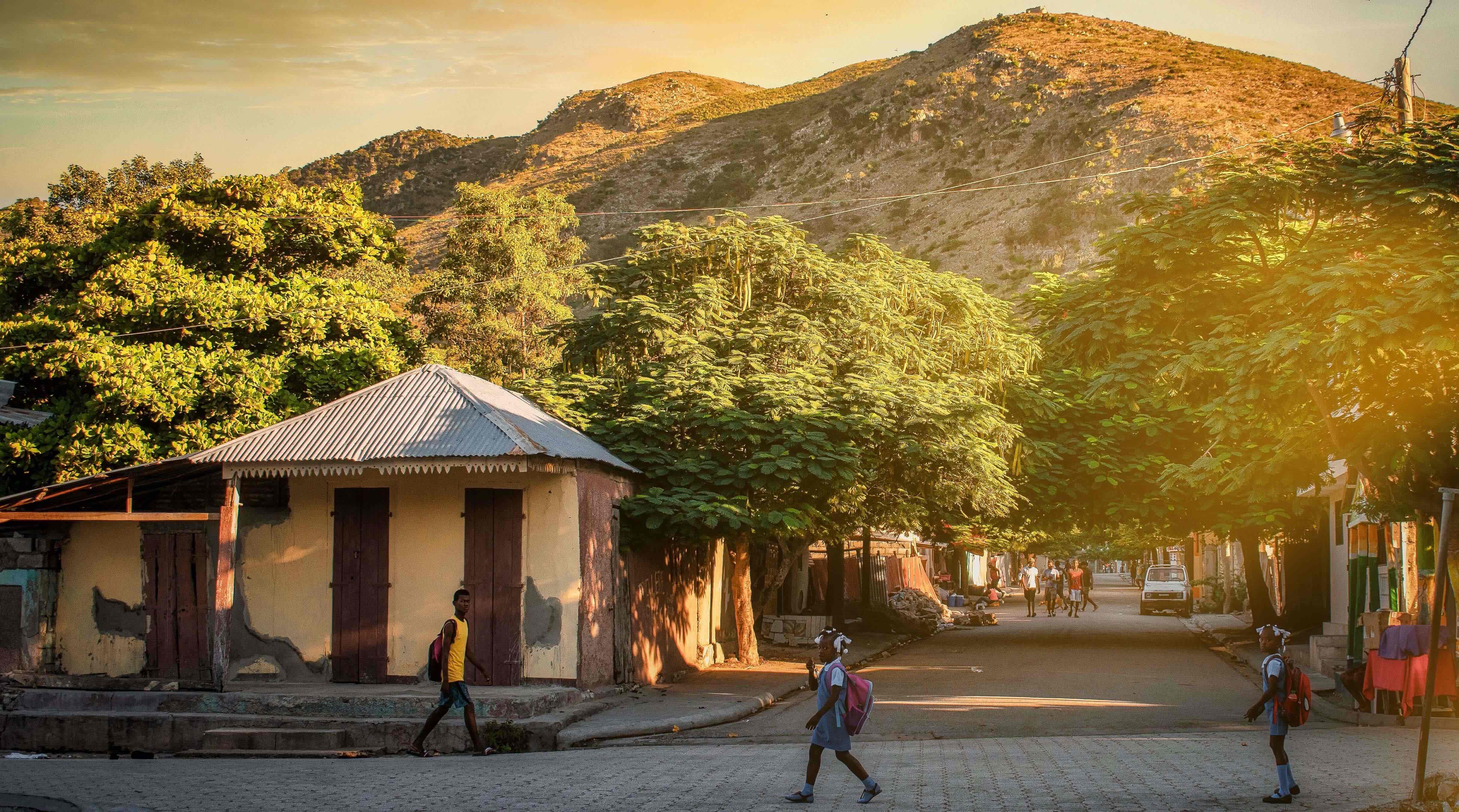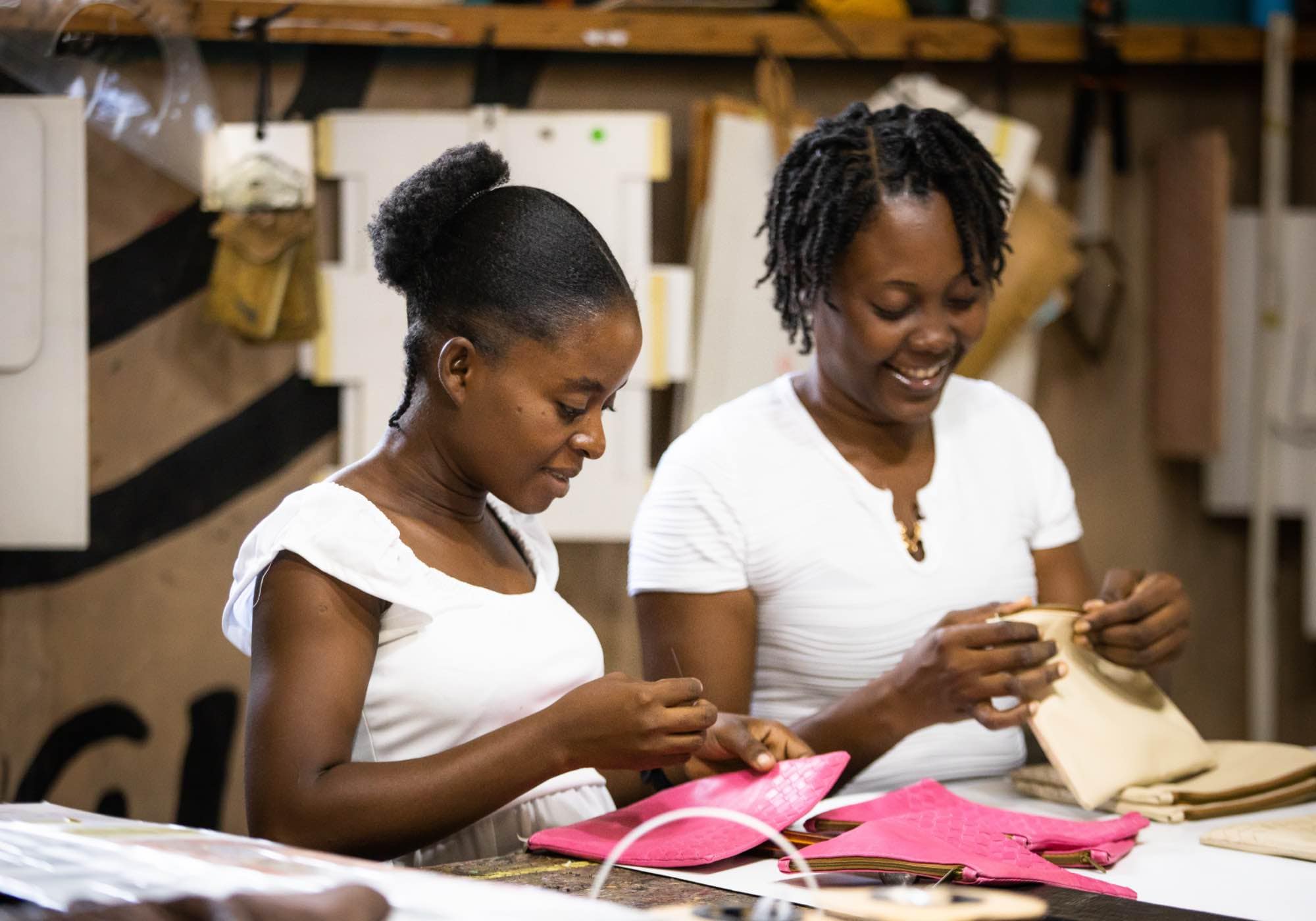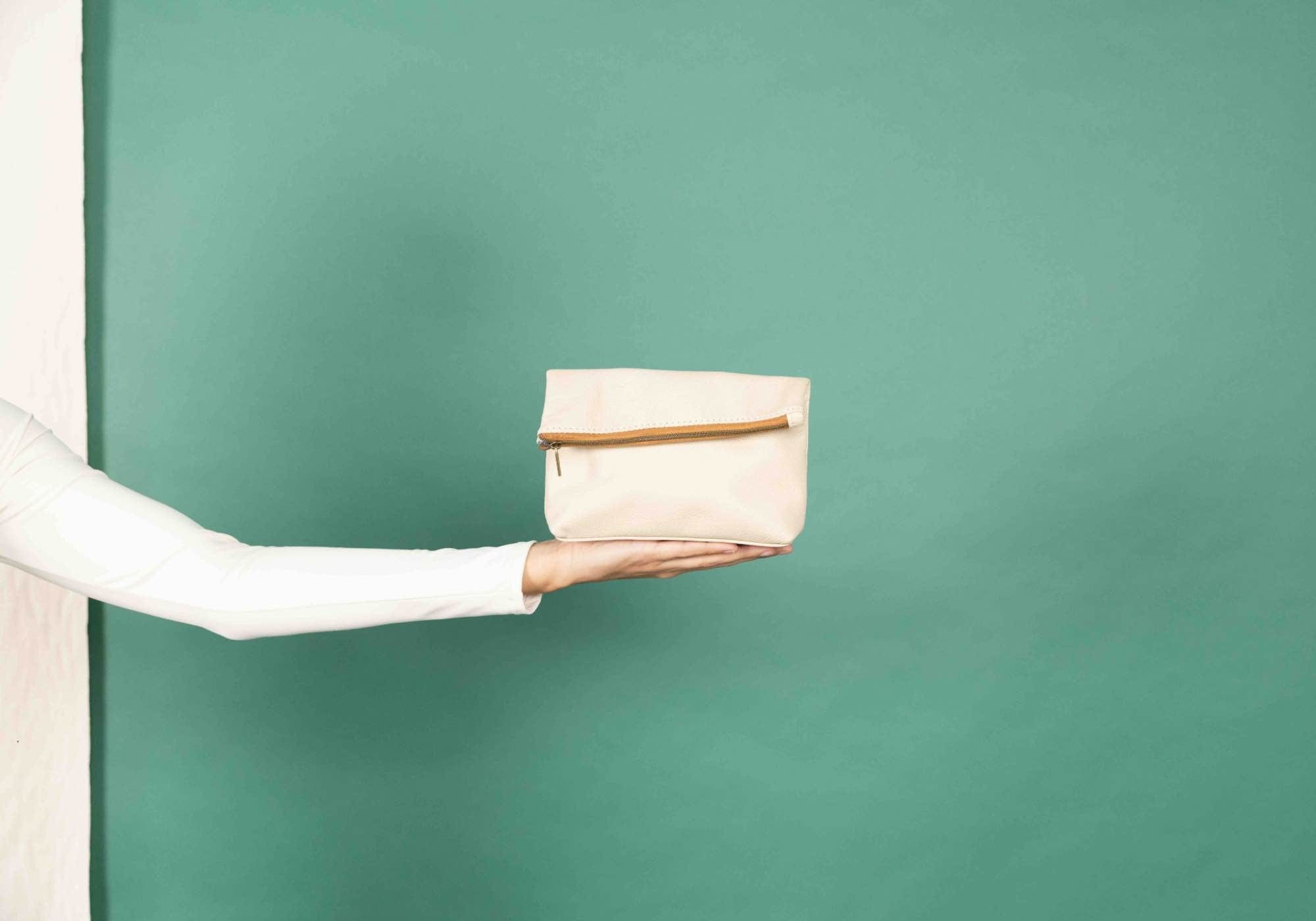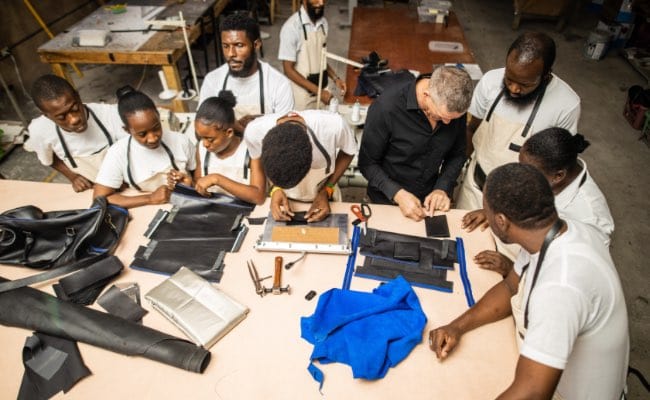OUR MATERIALS
Every product we craft in Haiti uses upcycled or responsibly-sourced materials. Behind every timeless piece is a Haitian artisan
with a unique identity, skill set, and passion for creating beauty that is made to last.
THE PROBELM: WASTE
Each year, the global population dumps 2.12 billion tonnes of waste. Products are currently not made to last, and the lack of integrity in manufacturing means that the fashion industry has run out of runway.
THE SOLUTION
100% of all raw materials in our production are repurposed, found locally on the island, or ethically sourced through Gold Rated Tanneries and then manufactured in our solar-powered facility.
We produce each and every piece by hand in small batches, with no remaining overstock that needs to be discarded. That way, everything we make ends up in the hands of our lovely customers and not thrown in a landfill or ocean.
Each order is mindfully packaged using eco-friendly materials.


THE PROBLEM: REAL LEATHER VS. VEGAN LEATHER
The term “vegan” bears Earth-friendly connotations, but there is another side of the story to consider. Nearly all vegan leathers contain a plastic base called petroleum. Petroleum is extremely toxic to the environment and takes somewhere between 500-1,000 years to biodegrade.
By comparison, real leather takes between five and ten years to completely biodegrade. We respectfully ask you to consider your vegan goods sources to ensure they are using environmentally friendly practices, which include eliminating petroleum from their products.
OUR SOLUTION
Working with genuine leather is one of the first known uses of recycling, and a way to ensure no part of an animal is wasted. Historically, leather has been a by-product of the meat industry used to make goods that are durable and repairable, unlike most of its vegan counterparts.
At Deux Mains, we exclusively work with the most sustainable tanneries in the world, which have reduced their water usage by 30% and recycle 66% of all waste. We only work with Gold Rated Tanneries.
To take this a step further and gain more knowledge of the supply chain, we visit our tanneries and build relationships with them.
By shrinking our supply chain, everything is traceable, and permits us to work with tanneries that align with our vision for fair treatment of people and the planet. Learn more about our select leather suppliers.
THE PROBLEM: CARBON FOOTPRINT
In the existing market, shoes and sandals are made quickly and without quality raw materials. On average, the production of one shoe produces 30 pounds of carbon dioxide and there are more than 15 billion shoes produced each year.
THE SOLUTION
We at Deux Mains handcraft high quality, comfortable footwear with 100% repurposed tire soles and a 50,000 mile guarantee for each pair.
Each repurposed sole proudly carries the marks of rolling through the chaotic streets of Port-Au-Prince and helps reduce carbon admittance by 10KG per pair.
By creating new ways to design, make, and manufacture shoes, Deux Mains has transformed more than 15,000 tires into our signature sandal soles.
If our production process hadn’t intervened, these rescued tires would have otherwise been burned, putting unwanted C02 into the atmosphere.
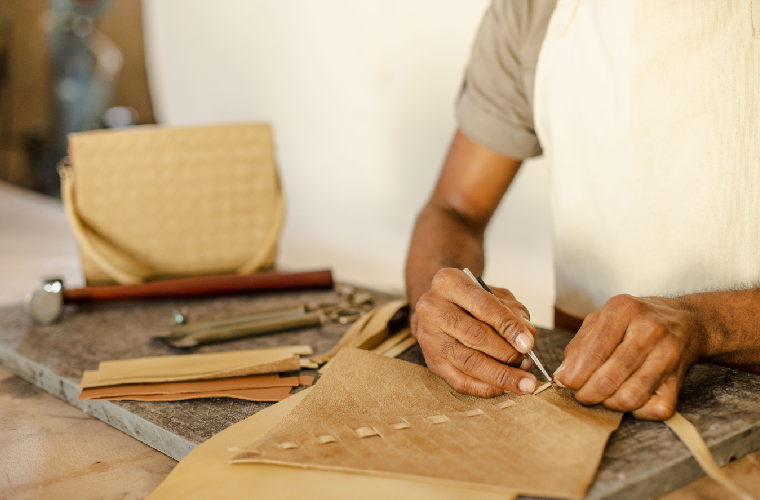
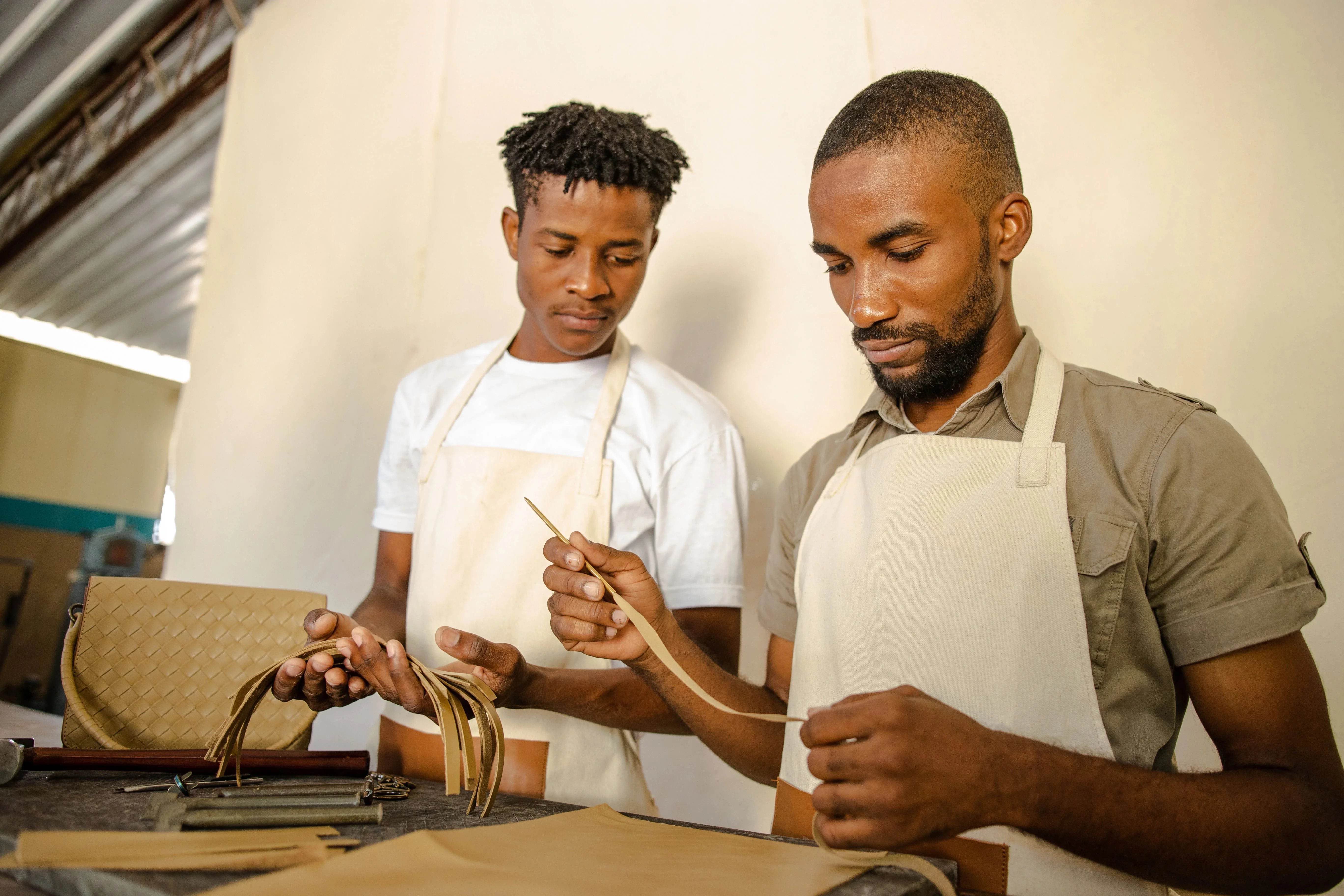
THE PROBLEM: ETHICAL COST OF FAST FASHION
The exploitation of makers is nothing new to the fashion industry. Sadly, “sweatshops” and unfair labor practices are the standard. Although these issues are continuously highlighted in the media, little to zero change is actually being seen in this industry — which is mostly dominated by women.
THE SOLUTION
Everything we make is handcrafted by highly skilled artisans in our women-owned factory in Haiti.
The core of our value system lives in raising the economic status of the Haitian people by creating great careers, access to education, and the ability to rise in the company.
A fair wage for 100% of the Deux Mains team is just the beginning of our fashion revolution.
Access to education scholarships, health insurance, maternity/paternity leave, and paid vacation are other valuable tools we use to create progress.
We invest globally in education and paid job training with our nonprofit partner, REBUILD Globally. We work with young men and women by training them with the marketable skills they need to live a fruitful life and provide direct access to a career.
THE PROBLEM: CLIMATE CHANGE
The global fashion industry is a disproportionately large contributor to the current climate crisis, and reducing its impact is a critical necessity. Greenhouse gases, which are produced when fossil fuels are burned, lead to rising global temperatures and climate change.
The fashion industry belches out 1.2 billion tonnes of CO2 equivalent per year, which is more emissions than the shipping and aviation industries combined.
THE SOLUTION
With our 100% solar powered factory, we utilize a renewable source of power: the sun.Our solar energy factory plays an important role in reducing greenhouse gas emissions and mitigating climate change.
Photographer: Jean Oscar
